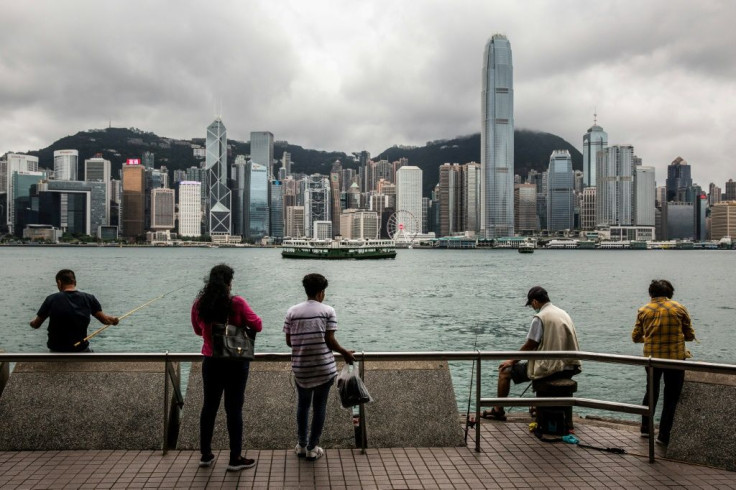UK Ex-foreign Ministers Call For G7 Hong Kong Monitor Group

Seven former British foreign ministers Monday called on Prime Minister Boris Johnson to push G7 allies to set up an international monitoring group for Hong Kong in response to Beijing's tightening control over the restless city.
China has sparked alarm among Western powers with plans to impose a sweeping national security law on the semi-autonomous financial hub.
Beijing says the law is needed to combat "terrorism" and "separatism" after the city was upended last year by months of huge and often violent pro-democracy protests.
Opponents fear the law -- which is bypassing Hong Kong's legislature -- will be used to stifle dissent, like on the authoritarian mainland, and will deal a fatal blow to the autonomy the former colony was promised ahead of its 1997 handover.
The UK, US, Australia and Canada have issued a joint statement criticising Beijing's plan, while London has announced plans to extend visa rights to Hong Kongers eligible for British National (Overseas) passports.
But former foreign secretaries from both sides of Britain's political divide have called on Johnson to take a more proactive role.
"The UK, by itself, cannot change Chinese behaviour on Hong Kong. But the international community working together might," Malcolm Rifkind, the letter's lead author, told AFP.
The letter was co-signed by Margaret Beckett, William Hague, Jeremy Hunt, David Miliband, David Owen and Jack Straw.
Rifkind said London should "take the lead in co-ordinating international concern and action" because of the 1984 agreement Beijing made with Britain promising Hong Kong would keep certain freedoms and autonomy for 50 years after the handover.
The group called on Johnson to reach out to G7 allies to create a working group "to monitor the situation in Hong Kong and coordinate joint action".
The body could be modelled on a similar organisation set up by the US, Britain, France, Germany, Italy and Russia to respond to the Balkans crisis in the early 1990s, they suggested.
Beijing has lashed out at any foreign criticism of its handling of Hong Kong, arguing the city's future is an internal affair.
However in Monday's letter, the former foreign ministers said Beijing is in "flagrant breach" of their 1984 agreement, which was registered at the UN as a treaty.
The G7 were planning to meet next month but on Saturday US President Donald Trump said he was delaying the scheduled summit.
There is no consensus among the G7 powers over how to respond to Beijing.
Trump has said he will strip Hong Kong of certain trade privileges and bar some Chinese students from US universities in response to Beijing's security law plans.
However the European Union has been more cautious, calling for dialogue with China while expressing "grave concern" about the proposed law.
Rifkind said he remained hopeful his group of former British envoys could build traction despite the summit cancellation, saying they would lobby both G7 nations directly and other countries outside the block.
© Copyright AFP {{Year}}. All rights reserved.




















